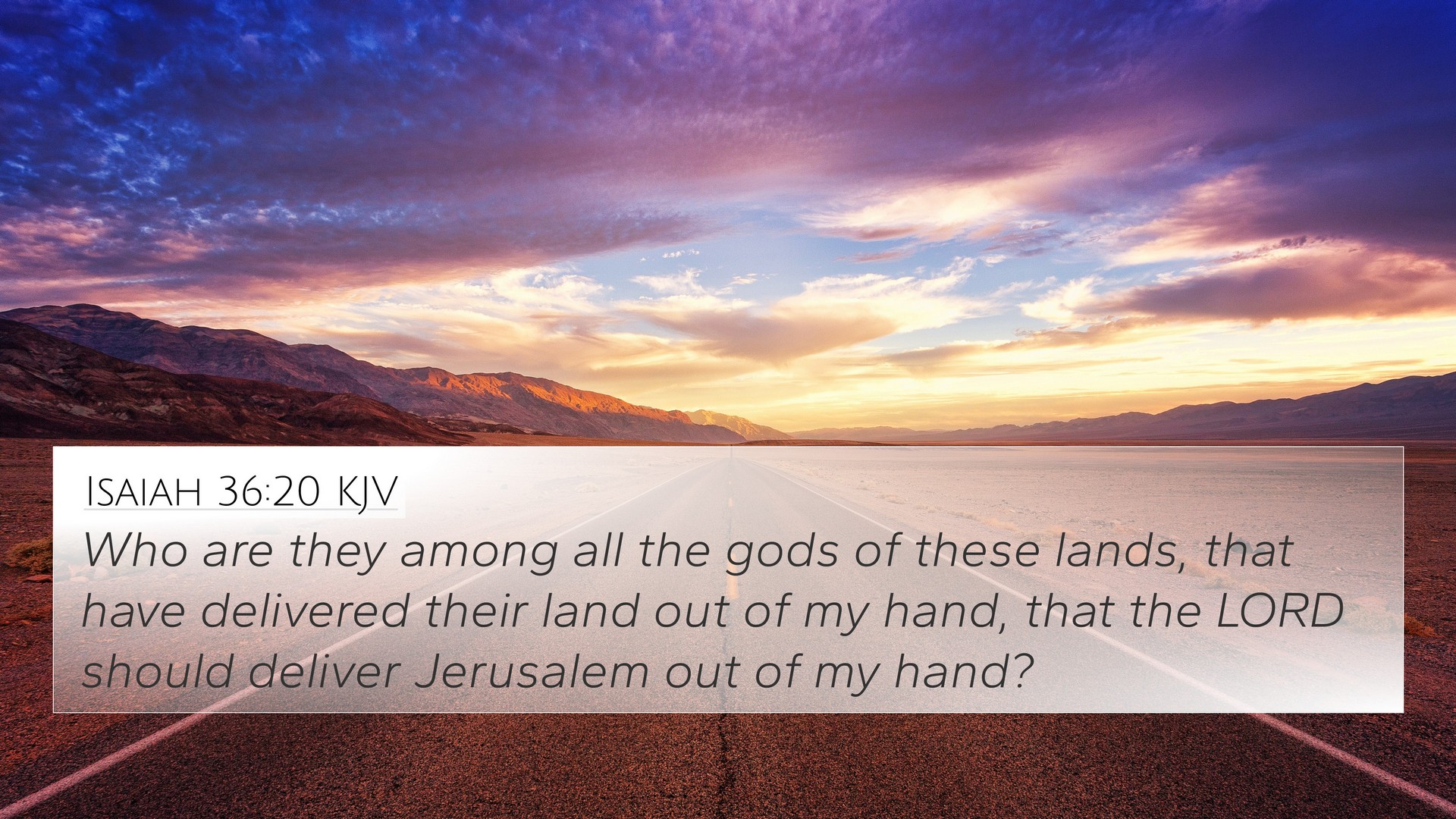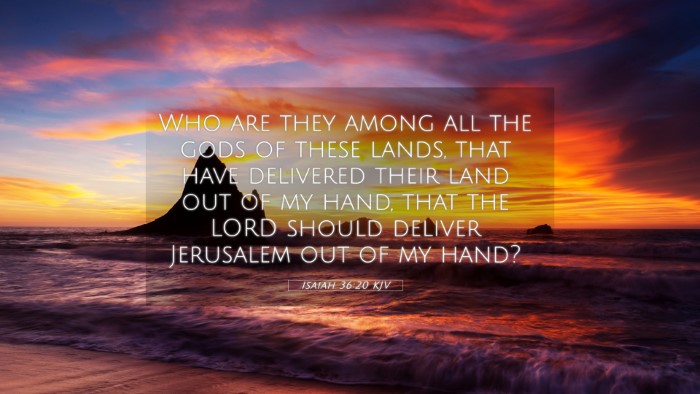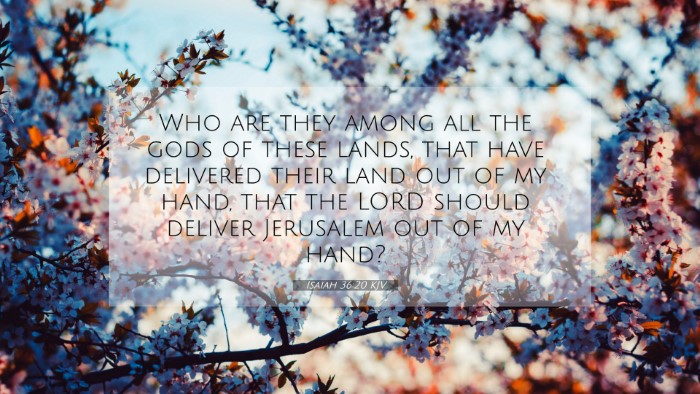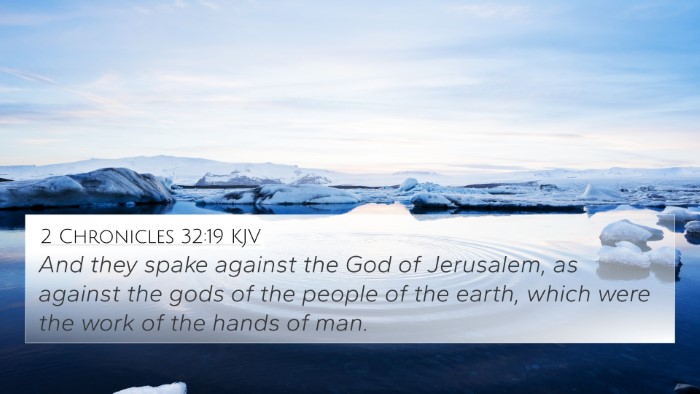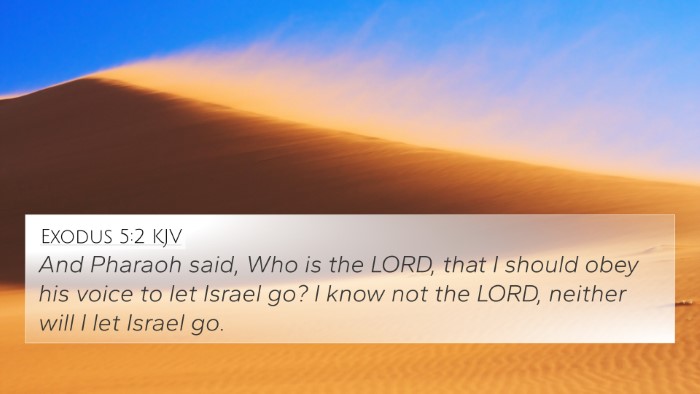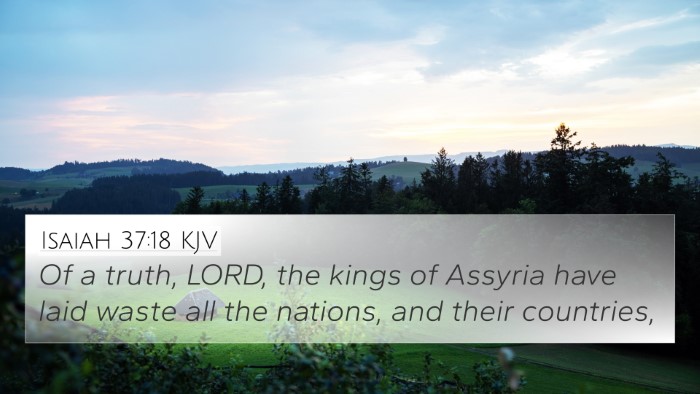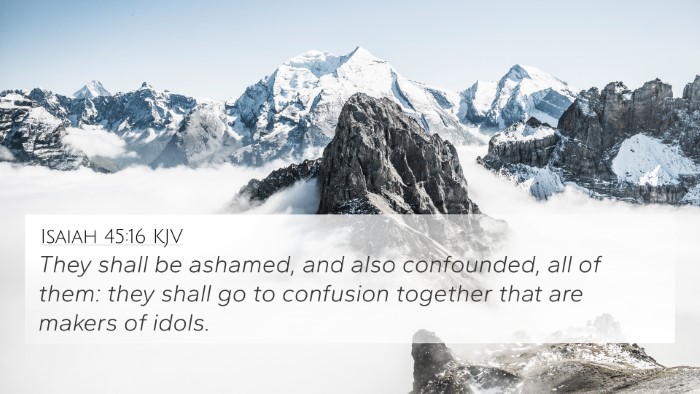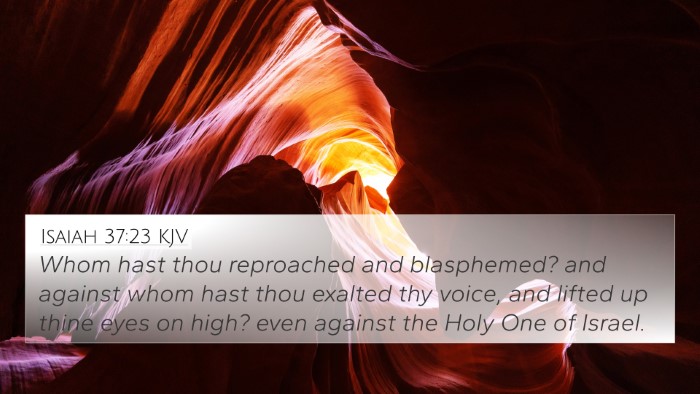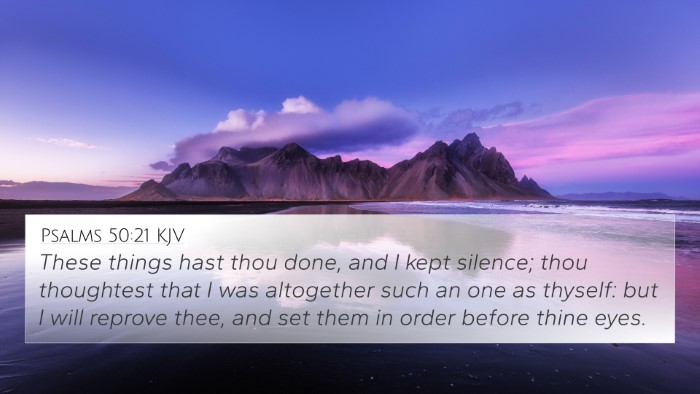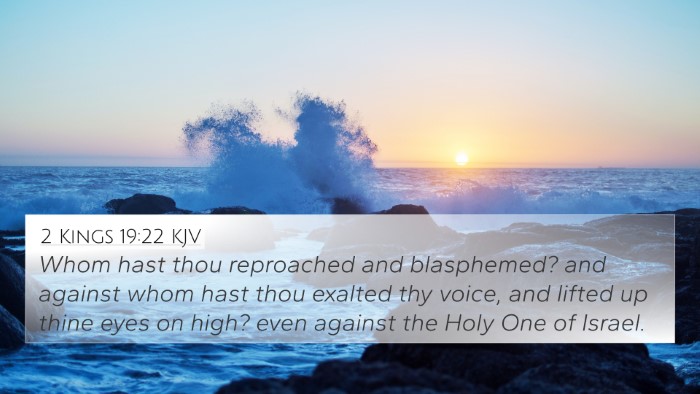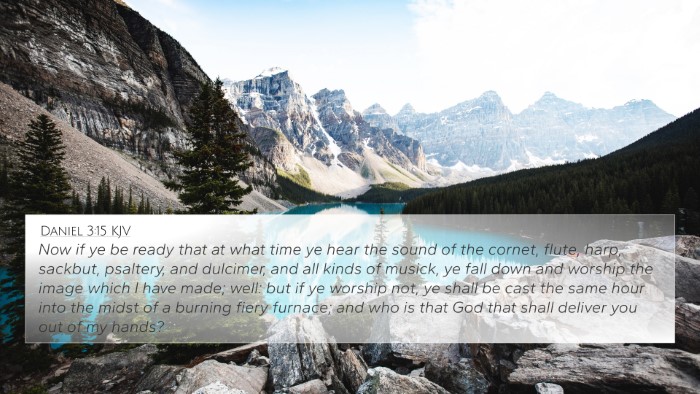Understanding Isaiah 36:20
Isaiah 36:20 is a profound verse that speaks to the power and authority of God amidst challenges and threats. This verse is part of a larger narrative involving the Assyrian king Sennacherib's attempt to undermine the faith of the people of Judah. The verse reads:
"Who among all the gods of these lands have delivered their land out of my hand, that the Lord should deliver Jerusalem out of my hand?"
Commentary Insights
This verse reflects the arrogance of the Assyrian king and highlights a common theme in Scripture: the comparison of the one true God with the false gods of the nations. Let's delve into some insights provided by public domain commentators, aggregating their wisdom for a modern understanding.
Matthew Henry's Commentary
Matthew Henry indicates that this verse is a testament to the folly of trusting in idols and the impotence of false deities. The Assyrian king, in questioning the power of God, shows a lack of awareness of the true sovereignty of Yahweh. Henry emphasizes that God’s ability to save His people does not depend on circumstances but on His divine will.
Albert Barnes' Notes
Albert Barnes adds that this confrontation reflects a critical moment in Israel's history where faith is challenged. He notes that the emphasis is on God’s unique position as the protector of Jerusalem. Barnes suggests that this verse serves as a reminder to rely solely on God during times of crisis, not on earthly powers.
Adam Clarke's Commentary
Adam Clarke analyzes the rhetorical question posed by Sennacherib, revealing the king's miscalculation regarding God's might. Clarke points out that the Assyrians had experienced victories over many nations, but this did not equate to victory over God's chosen people. Clarke encourages readers to reflect on the assurance that God provides in times of adversity.
Cross-References in Scripture
Isaiah 36:20 connects with several other passages throughout the Bible, highlighting themes of divine sovereignty and the futility of opposing God:
- 2 Kings 18:33-35 - Parallel account of the Assyrian threats against Jerusalem.
- Isaiah 37:10-12 - God’s response to the Assyrian challenge.
- Psalm 115:3-8 - A contrast between the true God and idols.
- Jeremiah 10:10-11 - Affirmation of the Lord as the living God, unlike worthless idols.
- Exodus 14:14 - Assurance of the Lord fighting for His people.
- Isaiah 45:20-23 - God declaring His uniqueness and the futility of false gods.
- Philippians 2:10-11 - The universal acknowledgment of Jesus Christ’s lordship.
- Romans 8:31 - If God is for us, who can be against us?
- 1 Corinthians 10:20-21 - Understanding the spiritual dynamics behind idol worship.
- Acts 4:12 - Salvation found in no other name but Jesus.
Thematic Connections
The threats posed in Isaiah 36:20 resonate with numerous biblical themes:
- Faith during adversity: Similar stories of reliance on God can be found throughout both the Old and New Testaments.
- God’s sovereignty: This is a recurring theme, from the establishment of Israel to the New Testament realization of God's ultimate plan through Christ.
- The futility of idolatry: The scripture frequently juxtaposes the living God with lifeless idols, teaching the importance of worshiping the true God.
Cross-Referencing and Tools for Study
For those interested in deeper study, employing tools for Bible cross-referencing can enhance understanding:
- Bible concordance: A valuable resource for locating themes and connecting verses within Scripture.
- Bible cross-reference guide: Provides detailed links between similar passages.
- Cross-reference Bible study methods: Techniques for systematic exploration of interconnected scriptures.
Conclusion
Isaiah 36:20 is not merely a historical account; it is a powerful reminder of God's might and the importance of trust in Him during challenging circumstances. By understanding the context and utilizing tools for cross-referencing, believers can deepen their knowledge and enrich their faith.
